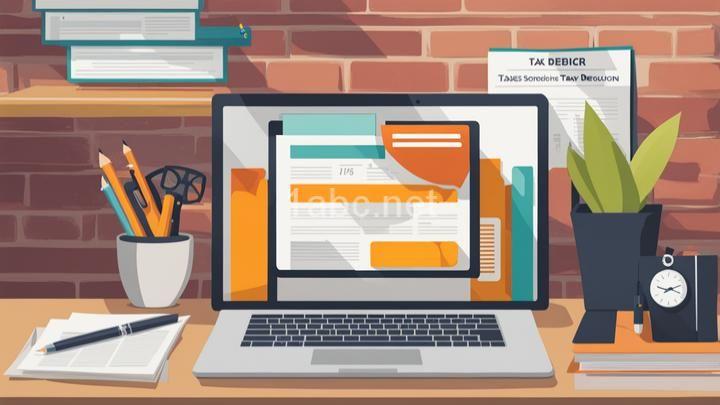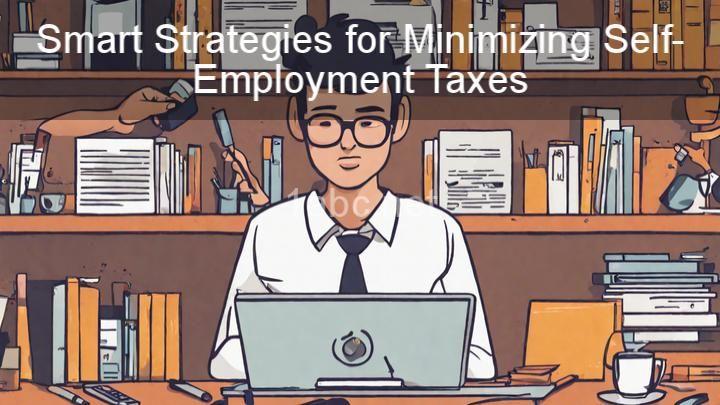Top Tax Mistakes Freelancers Make (And How to Avoid Them)

Introduction:
Tax season can be a stressful time for everyone, but for freelancers, it can be especially daunting. With the freedom and flexibility that comes with being your own boss, there are also important responsibilities that need to be taken care of, including taxes. In this blog post, we will discuss the top tax mistakes that freelancers commonly make and provide practical tips on how to avoid them. By staying informed and proactive, you can prevent financial and legal issues and ensure a smooth tax season.
I. Not Keeping Track of Income and Expenses
One of the biggest mistakes that freelancers make is not keeping track of their income and expenses. It's crucial to maintain accurate records to properly report your earnings and claim deductions. Without a clear picture of your financial situation, you may miss out on deductible expenses or even face penalties for underreporting your income.
To effectively track your income and expenses, consider using accounting software or apps specifically designed for freelancers. These tools can help you categorize your expenses, generate reports, and even link directly to your bank accounts to automatically import transactions. By regularly updating your records, you'll have a clear overview of your finances and be well-prepared when it's time to file your taxes.
II. Failing to Understand Deductible Expenses
Freelancers often overlook deductible expenses, which can significantly reduce their tax liability. It's important to understand what expenses you can claim on your taxes to maximize your deductions and ultimately save money. Some commonly overlooked deductions for freelancers include home office expenses, business-related travel costs, and professional development expenses.
When it comes to home office expenses, you can deduct a portion of your rent or mortgage, utilities, and even internet bills if you use your home as your primary place of business. Business-related travel costs, such as transportation, accommodations, and meals, can also be deducted if they are necessary and directly related to your freelance work. Additionally, expenses for professional development, such as workshops, conferences, or online courses, can be deductible if they improve your skills and knowledge within your field.
Take the time to research and understand the deductible expenses that apply to your specific freelance business. By keeping track of these expenses throughout the year, you can ensure that you're taking full advantage of the deductions available to you.
III. Neglecting Quarterly Estimated Tax Payments
As a freelancer, you are responsible for paying your taxes throughout the year, not just at tax time. Neglecting quarterly estimated tax payments can result in penalties and interest charges from the IRS. It's important to calculate and make timely payments to avoid any unnecessary financial burden.
To determine how much you should pay in quarterly estimated taxes, you can use the IRS Form 1040-ES or consult with a tax professional. The Form 1040-ES will help you estimate your income for the year and calculate the amount you need to pay each quarter. Many freelancers find it helpful to set aside a portion of their income each month to ensure they have the funds available when quarterly payments are due.
Making timely quarterly tax payments is easier than ever with online payment systems offered by the IRS. You can make payments electronically using Direct Pay or through the IRS2Go mobile app. By staying on top of your estimated tax payments, you can avoid penalties and maintain a good standing with the IRS.
IV. Mixing Personal and Business Finances
A common mistake that freelancers make is mixing their personal and business finances. This can lead to confusion when it comes to tax reporting and make it difficult to accurately track your business income and expenses. To avoid this mistake, it's essential to keep your personal and business finances separate.
Start by setting up a separate bank account and credit card specifically for your freelance business. This will make it easier to track your business transactions and ensure that you're not inadvertently using personal funds for business expenses. It's also a good idea to establish a consistent system for recording your income and expenses, whether it's using accounting software or simply keeping a detailed spreadsheet.
By maintaining separate finances, you'll have a clear record of your business activities and be better prepared to report your income and deductions accurately when tax time rolls around.
V. Not Seeking Professional Help When Needed
While freelancers have the advantage of being able to handle many aspects of their business themselves, there are times when seeking professional help is advisable, especially when it comes to taxes. Tax laws can be complex, and it's easy to miss out on opportunities to maximize deductions or make mistakes that could trigger an audit.
Consider consulting with a tax professional or accountant if you have any doubts or questions about your tax situation. They can provide expert advice tailored to your specific circumstances and help you navigate any complex tax issues. A tax professional can also review your records and ensure that you're taking advantage of all available deductions.
The benefits of seeking professional help extend beyond just tax season. By establishing a relationship with a tax professional, you'll have a trusted advisor who can provide ongoing guidance and support as your freelance business grows and evolves.
Conclusion:
Freelancers face unique challenges when it comes to taxes, but by avoiding common mistakes, you can ensure a smooth and stress-free tax season. By keeping track of your income and expenses, understanding deductible expenses, making timely estimated tax payments, separating personal and business finances, and seeking professional help when needed, you'll be well-prepared to navigate the intricacies of the tax system.
Take the time to educate yourself on the tax laws that apply to your freelance business and implement systems and tools that can help you stay organized. By staying proactive and informed, you can avoid costly mistakes and focus on what you do best – your freelance work. So, keep those records accurate, stay on top of your deductions, make those estimated tax payments, keep your personal and business finances separate, and don't hesitate to seek professional help when you need it. Happy tax season!
FREQUENTLY ASKED QUESTIONS
What are the most common tax mistakes that freelancers make?
Freelancers often make several common tax mistakes. Some of the most frequent ones include:
-
Misclassifying their employment status: Misunderstanding your employment status as a freelancer can lead to misreporting income and expenses. Make sure you are accurately classified as a freelancer and understand the tax implications.
-
Failing to keep thorough records: Maintaining detailed records of income and expenses is crucial for accurate tax reporting. Freelancers should keep track of invoices, receipts, and any other relevant documents for easy reference during tax time.
-
Not setting aside enough money for taxes: Freelancers are responsible for paying both the employer and employee portions of Social Security and Medicare taxes, known as self-employment taxes. Failing to set aside enough money throughout the year can lead to unexpected tax obligations or penalties.
-
Neglecting deductible expenses: Freelancers are eligible for various deductions related to their business, such as home office expenses, equipment purchases, and professional development. Failing to claim these deductions can lead to overpaying taxes.
-
Mixing personal and business finances: Keeping personal and business expenses separate is essential for accurate tax reporting. Mixing finances can create confusion and make it difficult to determine which expenses are eligible for deductions.
-
Missing deadlines or extensions: Missing tax filing or payment deadlines can result in penalties and interest charges. Freelancers should be aware of their tax obligations and make sure to file and pay taxes on time.
Remember, it's always a good idea to consult with a tax professional or accountant to ensure you are properly meeting your tax obligations and maximizing your deductions as a freelancer.
Are there any deductions that freelancers often overlook?
Yes, there are several deductions that freelancers often overlook. Here are a few of them:
-
Home office expenses: If you use a dedicated space in your home for your freelance work, you may be eligible to deduct a portion of your rent or mortgage, utilities, and other related expenses.
-
Equipment and supplies: You can deduct the cost of any equipment or supplies that you use for your freelance work, such as computers, software, office furniture, and stationery.
-
Health insurance premiums: Freelancers can often deduct the cost of their health insurance premiums, including those for themselves, their spouses, and their dependents.
-
Professional development and education expenses: If you invest in courses, conferences, or other professional development activities to enhance your skills as a freelancer, you may be able to deduct these expenses.
-
Self-employment taxes: Freelancers are responsible for both the employer and employee portions of Social Security and Medicare taxes. However, you can deduct the employer portion of these taxes as a business expense.
-
Travel expenses: If you travel for business purposes, such as attending client meetings or conferences, you can deduct expenses like airfare, lodging, meals, and transportation.
-
Subscriptions and memberships: If you subscribe to industry-related magazines, online publications, or professional memberships, you can likely deduct the cost of these subscriptions.
It's important to keep accurate records and consult with a tax professional to ensure that you are taking advantage of all the deductions you qualify for as a freelancer.
What is the best way to keep track of my expenses as a freelancer?
As a freelancer, there are several effective ways to keep track of your expenses:
-
Spreadsheets: Create a spreadsheet using software like Microsoft Excel or Google Sheets. List your expenses in categories, such as travel, office supplies, software subscriptions, etc. Include columns for date, description, amount, and payment method. This method allows for customization and easy calculations.
-
Expense Tracking Apps: Utilize expense tracking apps designed specifically for freelancers. Examples include Expensify, Xpenditure, or QuickBooks Self-Employed. These apps often offer features like receipt scanning, categorization, and integration with accounting software.
-
Accounting Software: Consider using accounting software programs like QuickBooks or FreshBooks. These applications offer built-in expense tracking features and automated categorization. They also allow you to generate reports, track invoices, and sync with your bank accounts.
-
Receipt Scanning: Digitize your receipts using mobile apps like Adobe Scan or CamScanner. This eliminates the need for physical copies and makes it easier to organize and track expenses. Some expense tracking apps also offer receipt scanning functionality.
Remember, the best method for keeping track of your expenses depends on your personal preferences and needs. Experiment with different options until you find a system that works best for you.




